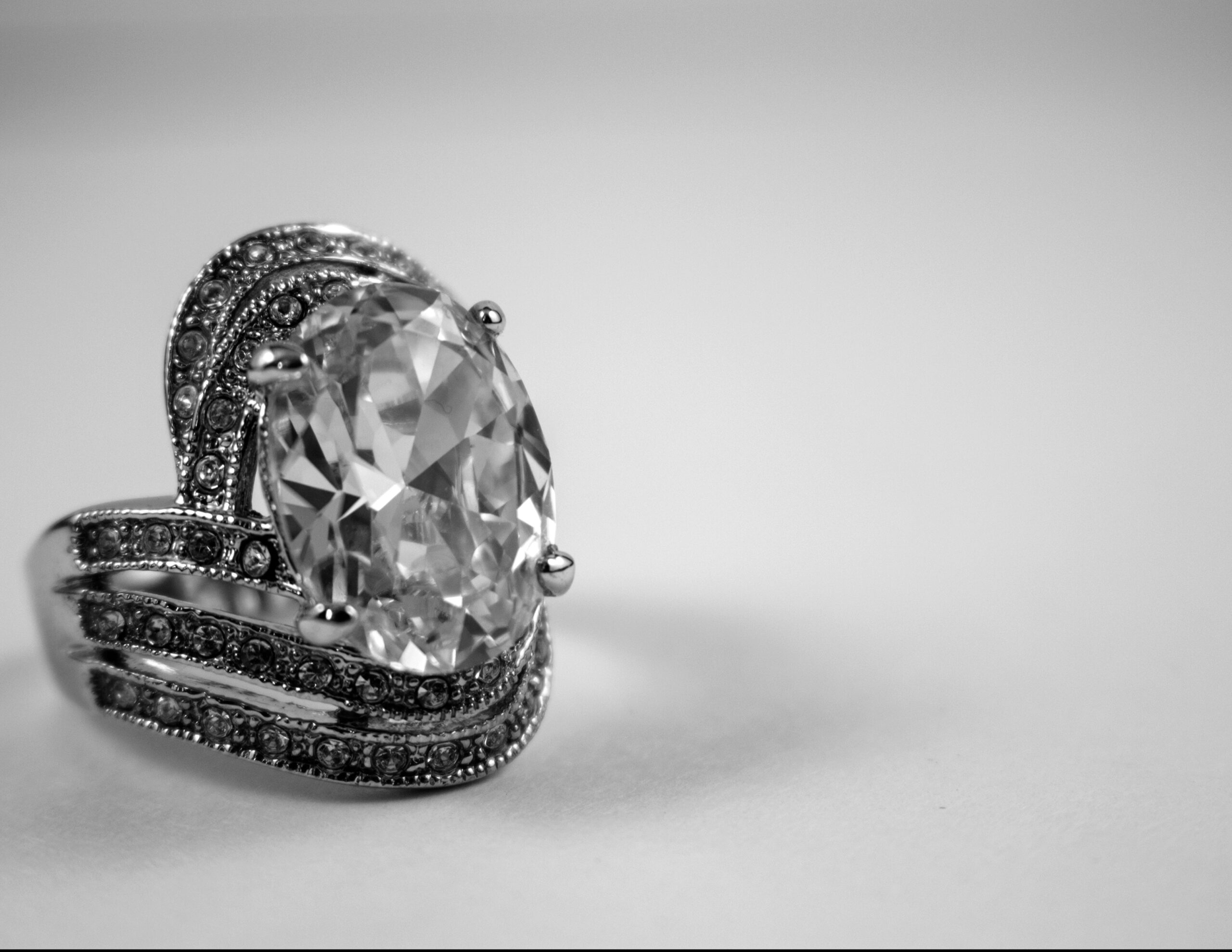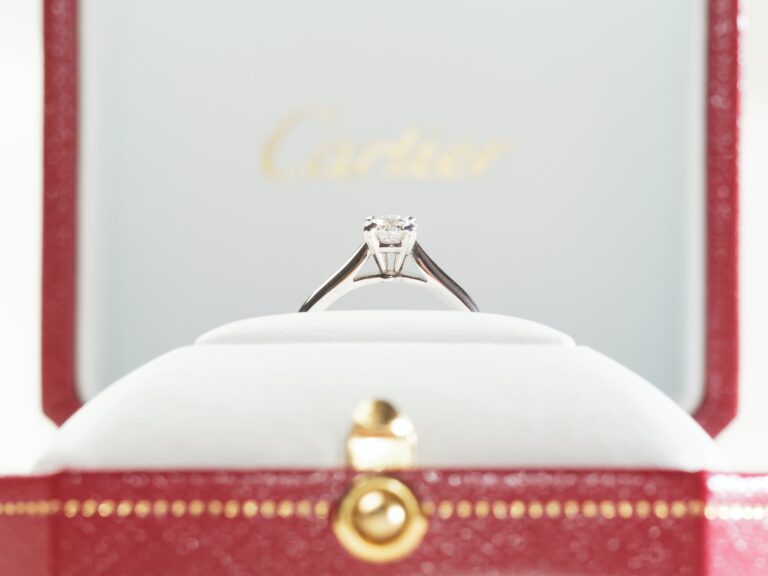Is It Smart to Buy Jewelry
Every sparkle catches our eye, tempting us to reach out and indulge in the world of fine jewelry. But as we stand at the precipice of these adornments, a question surfaces: is it truly a smart decision to buy jewelry? While many consider it an extravagant expense, others argue for the sentimental and financial value attached to these precious pieces. In this article, we will delve into the pros and cons of investing in jewelry, unraveling the complexities to help you make an informed decision. So, let us examine the glittering realm of jewelry and discern whether it is a wise choice to adorn ourselves with these shimmering treasures.
Table of Contents
- The Value of Jewelry: A Wise Investment or a Frivolous Expense?
- Factors to Consider before Purchasing Jewelry
- Unveiling the Hidden Costs of Buying Jewelry
- Investing in Timeless Pieces: A Sensible Choice
- Exploring Alternative Options: Making Smarter Jewelry Purchases
- Jewelry: A Symbol of Sentiment or a Financial Asset?
- FAQs
- The Way Forward
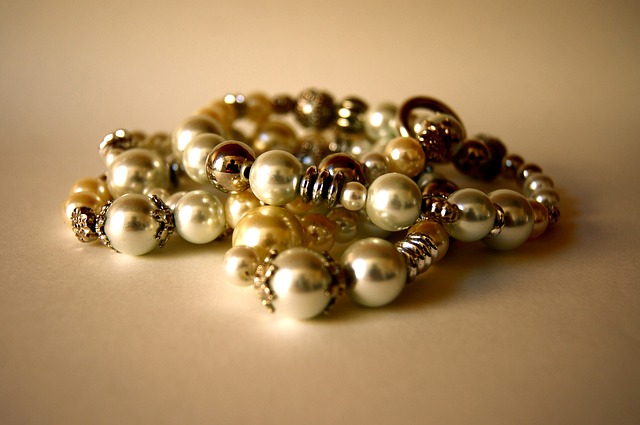
The Value of Jewelry: A Wise Investment or a Frivolous Expense?
When it comes to jewelry, opinions are divided on whether it is a wise investment or a frivolous expense. Let’s take a closer look at the different perspectives to help you make an informed decision.
For those who see jewelry as a wise investment, there are several compelling reasons. Firstly, jewelry is often made from precious metals and adorned with precious gemstones, which hold intrinsic value. Gold, for example, has historically proven to be a strong and stable investment. Not only does it retain its value over time, but it can also act as a hedge against inflation. The rarity and desirability of certain gemstones can also contribute to their value appreciation over the years.
On the other hand, some argue that jewelry is a frivolous expense that serves no practical purpose beyond adornment. They believe that investing in tangible assets such as real estate or stocks is a wiser use of resources. Furthermore, they argue that the value of jewelry fluctuates based on fashion trends, making it a riskier investment. While it may bring aesthetic pleasure and sentimental value, they question its ability to provide a reliable return on investment.
Factors to Consider before Purchasing Jewelry:
When it comes to buying jewelry, there are several important factors that you should keep in mind to ensure a satisfactory purchase. Firstly, it is crucial to consider the quality of the jewelry. Look for reputable jewelry stores or online retailers that offer high-quality pieces made with genuine materials. Pay attention to factors such as the type of metals used, gemstone quality, and craftsmanship. Remember that investing in well-made jewelry ensures longevity and durability.
Another crucial factor to consider is your personal style and preferences. Everyone has different tastes, so it’s important to choose jewelry that reflects your individuality and complements your wardrobe. Consider whether you prefer minimalist designs or statement pieces, and if you have a preference for gold, silver, or other metals. Additionally, take into account your lifestyle and how often you plan to wear the jewelry. If you lead an active lifestyle, you may want to opt for more durable and practical pieces that can withstand everyday wear and tear. Ultimately, by considering these factors, you can make an informed decision and find the perfect jewelry that not only brings you joy but also stands the test of time.
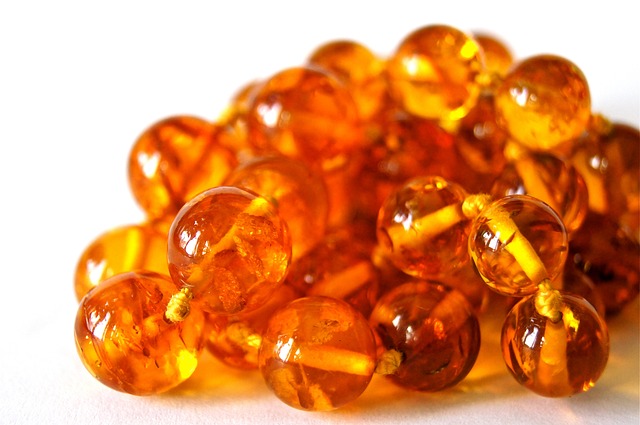
Unveiling the Hidden Costs of Buying Jewelry
Buying jewelry can be an exciting and glamorous experience, but it’s important to be aware of the hidden costs that can come along with it. These costs are often overlooked or underestimated, which can lead to unexpected financial burdens. By , you can make informed decisions and ensure that you’re getting the best value for your money.
The Hidden Costs:
1. Appraisal Fees: Many jewelry stores charge fees for evaluating the value of the piece you’re interested in. These fees can vary and may not be disclosed upfront. It’s essential to inquire about any appraisal costs before making a purchase.
2. Insurance: Protecting your precious jewelry is crucial, and that’s where insurance comes in. However, insuring fine jewelry can come with hefty premiums. It’s important to consider this ongoing expense while calculating your budget.
3. Maintenance and Repairs: Over time, jewelry may require maintenance, cleaning, or even repairs. These costs can add up, especially if your piece contains delicate gemstones or intricate designs. Don’t overlook the potential expenses of keeping your jewelry in excellent condition.
Investing in Timeless Pieces: A Sensible Choice
When it comes to building a versatile and long-lasting wardrobe, investing in timeless pieces is a sensible choice. These are the items that never go out of style, no matter the changing trends. From a perfectly tailored black blazer to a classic white button-down shirt, timeless pieces serve as the foundation for a multitude of stylish outfits. These staples not only save you from the constant pressure of keeping up with the latest fads but also bring a touch of elegance and sophistication to your overall look.
One of the great benefits of timeless pieces is their ability to seamlessly transition from season to season. Whether you prefer a chic and effortless summer ensemble or a cozy and layered winter outfit, these items effortlessly adapt to any setting. By investing in quality pieces that stand the test of time, you can create a wardrobe that lasts for years. Think of a well-constructed leather handbag or a pair of well-fitted denim jeans that will remain stylish and functional for years to come.
In addition, timeless pieces allow for endless outfit possibilities. From dressing up for a formal event to putting together a casual weekend look, these staples effortlessly mix and match with each other, creating a variety of looks suitable for any occasion. With these versatile pieces, you can create a stylish wardrobe that reflects your personal taste and fashion sensibility. So, why waste time and money chasing fleeting trends when investing in timeless pieces guarantees both style and durability? Revamp your wardrobe with these iconic essentials and enjoy the benefits they bring to your fashion journey.
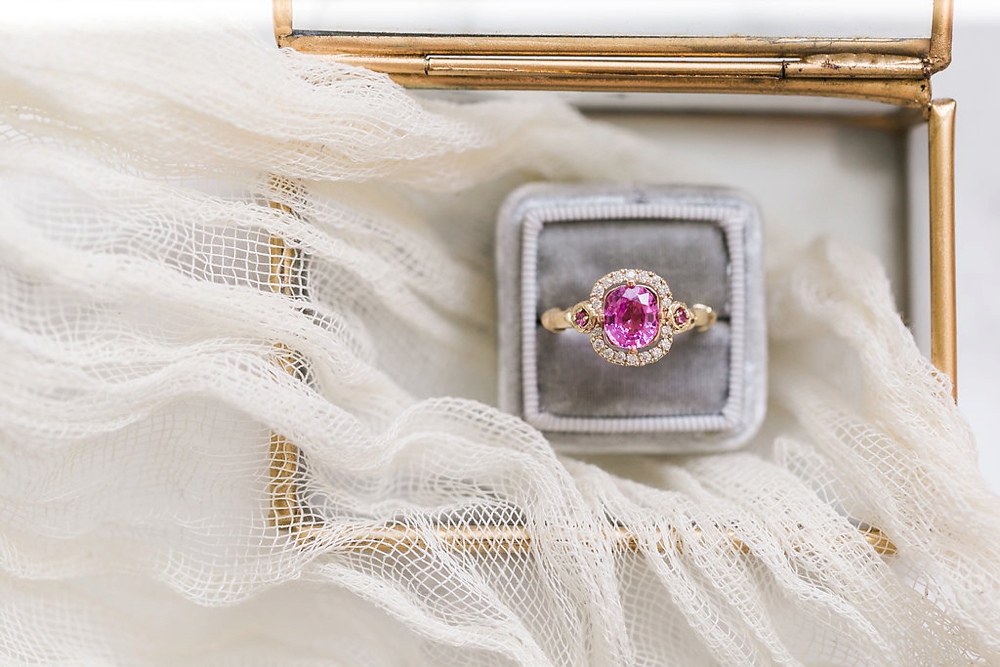
Exploring Alternative Options: Making Smarter Jewelry Purchases
In today’s world, making smarter choices is a top priority, even when it comes to jewelry purchases. Instead of following the traditional route, why not explore alternative options that not only enhance your style but also align with your values? Here, we present a thoughtful guide to help you navigate the world of jewelry, focusing on sustainable and ethical choices that have a positive impact on both the environment and society.
1. Vintage and Second-hand: Opting for vintage and second-hand jewelry not only adds a unique touch to your collection but also contributes to reducing the demand for newly mined materials. These pre-loved pieces have a rich history, often boasting intricate craftsmanship that is hard to find in modern designs. By embracing vintage and second-hand jewelry, you’re not only making a fashion statement but also supporting circular economy practices that promote sustainability.
2. Lab-grown Gemstones: Explore the captivating world of lab-grown gemstones, which offer a sustainable alternative to traditional mining. These stones are created in controlled laboratory environments using cutting-edge technology, mirroring the natural processes that take thousands of years deep within the earth’s crust. Not only are they visually indistinguishable from natural gemstones, but they also have minimal environmental impact and are free from the ethical concerns associated with mining practices.
3. Fair Trade and Responsible Sourcing: When it comes to metals and gems, choose brands that prioritize fair trade and responsible sourcing. Look for certifications like the Responsible Jewellery Council (RJC) or Fairtrade Gold, which ensure that the jewelry you purchase has been ethically and sustainably sourced. By supporting these initiatives, you can play a crucial role in empowering miners and artisans, protecting their rights, and promoting better working conditions throughout the supply chain.
4. Upcycled and Repurposed Creations: Consider jewelry made from upcycled or repurposed materials, breathing new life into discarded objects. From transforming vintage brooches into stunning pendants to incorporating recycled metals in modern designs, these one-of-a-kind pieces not only contribute to a more circular economy but also showcase the creativity and ingenuity of talented designers.
Making smarter jewelry choices doesn’t mean compromising on style or quality. It’s about being mindful of the impact our choices have on the world and embracing alternative options that align with our values. From vintage treasures to lab-grown gemstones, the possibilities are endless when it comes to finding jewelry that not only reflects your unique taste but also makes a positive contribution to our planet and society.
Jewelry: A Symbol of Sentiment or a Financial Asset?
When it comes to jewelry, it often holds a deeper meaning than meets the eye. It has long served as a beautiful symbol of love, affection, and sentimental value. From engagement rings to family heirlooms passed down through generations, these pieces carry emotional weight that transcends their monetary worth. They become cherished keepsakes, reminding us of special moments and connecting us to our loved ones. Whether it’s a necklace, a bracelet, or a pair of earrings, jewelry serves as a tangible representation of our relationships, milestones, and cherished memories.
On the other hand, jewelry also has a practical side, often serving as a valuable financial asset. Throughout history, gold, diamonds, and other precious gems have held their worth and even appreciated over time. They serve as a potential investment for those looking to diversify their portfolio or hedge against inflation. In uncertain economic times, jewelry can provide stability and a tangible form of wealth. Whether it’s for future financial security or simply the pleasure of owning something valuable, jewelry has the potential to become more than just a fashion statement.
FAQs
1. Why should I consider buying jewelry?
Buying jewelry can be a smart investment for various reasons. It holds sentimental value, adds a touch of elegance to your style, and can serve as a long-term financial asset.
2. Is jewelry a good financial investment?
While jewelry can hold value, it is not always the best financial investment. Factors such as brand, materials, and market demand can greatly affect the value of jewelry. It’s important to research and make informed decisions before investing.
3. How can jewelry be a sentimental investment?
Jewelry is often associated with special occasions, such as anniversaries, engagements, or birthdays. Gifting or buying jewelry as a token of love holds personal meaning and sentimental value.
4. Should I buy jewelry for its aesthetic value?
If you appreciate the artistry and craftsmanship behind jewelry, it can be a worthwhile purchase. A well-designed piece can enhance your appearance and add a unique touch to your overall style.
5. Are there any risks in buying jewelry?
Like any purchase, there are risks involved in buying jewelry. It’s crucial to ensure authenticity, quality, and avoid scams. Be cautious of counterfeit items and always buy from reputable sources.
6. How do I determine the value of jewelry?
Determining the value of jewelry requires assessing its quality, materials used (like gold, diamonds, or gemstones), brand reputation, and condition. Consulting with an expert appraiser can provide an accurate valuation.
7. What types of jewelry hold their value the best?
Certain types of jewelry, such as classic designs, high-quality diamonds, and pieces from renowned brands, tend to hold their value better over time. However, trends can also influence value appreciation.
8. Is there a resale market for jewelry?
Yes, there is a resale market for jewelry. Online platforms, auction houses, and jewelry stores often buy and sell pre-owned jewelry. Keep in mind that the resale value may differ from the purchase price due to market conditions and other factors.
9. Should I buy jewelry as an investment or for personal enjoyment?
This depends on your individual goals and preferences. If you appreciate jewelry for both its aesthetic value and as a potential investment, it can be a win-win situation. However, prioritize buying jewelry that you genuinely love and enjoy wearing.
10. How can I ensure the authenticity and quality of jewelry?
To ensure authenticity and quality, purchase jewelry from reputable sellers who provide certifications for stones and metals. Do thorough research, read customer reviews, and verify the credentials and reputation of the seller before making a purchase.
Remember, buying jewelry is a personal decision. Consider your motives, budget, and preferences before investing in jewelry to make a smart and satisfying purchase.
The Conclusion
In conclusion, the decision to buy jewelry is anything but straightforward. It requires careful consideration and understanding of both its emotional and monetary value. While jewelry can undoubtedly be a symbol of love, beauty, and prestige, it’s important to weigh the practicality of such an investment. Assess your financial situation, preferences, and expectations before diving into this glittering world. Remember, smart buying means finding a piece that brings joy and holds its value over time. So, go ahead and let your love for jewelry guide you, but always make a wise and considered choice.

